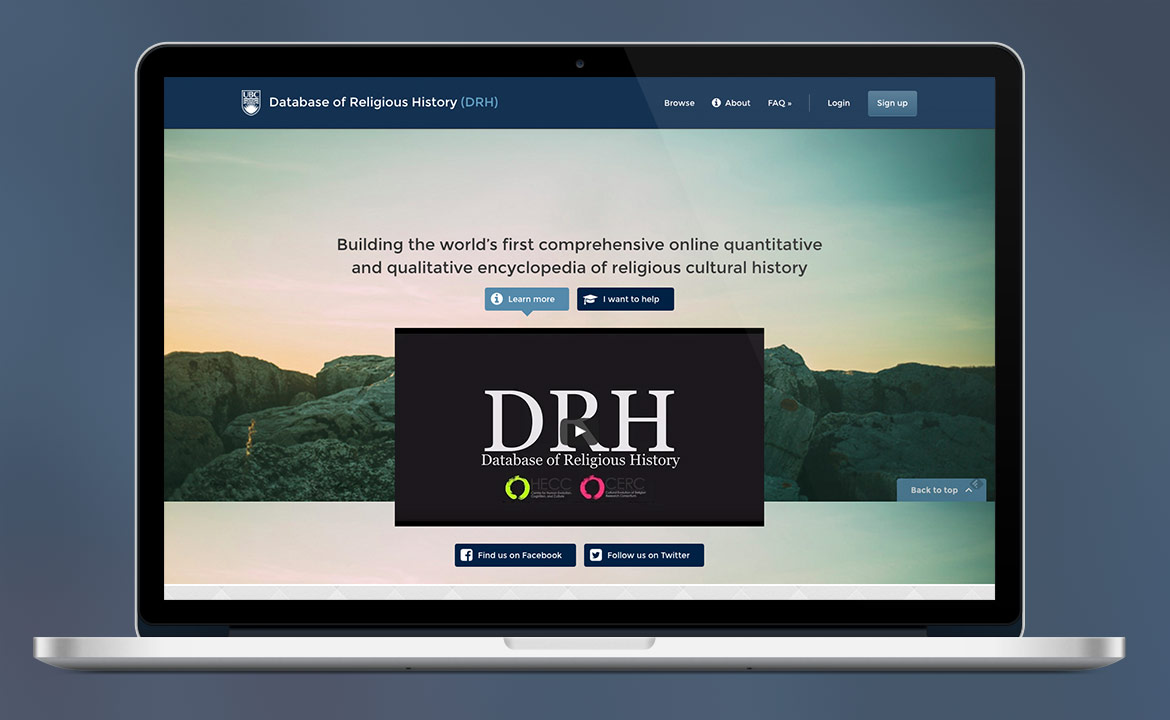
The Database of Religious History is an unusual and ambitious project that attempts to collect information systematically on the world’s religions that will serve as both a teaching tool as well as a way to understand religious changes through time. Coming from a strongly evolutionary and cognitive science of religion perspective, the database, created by Edward Slingerland of the University of British Columbia and Brenton Sullivan of Colgate University, is a work in progress that uses both qualitative and quantitative data. Although the latter may be hard to collect when dealing with religious history, the researchers have developed a database that draws on previous collections of ethnographies and religious and cultural traits that allows them to code and convert this material into quantitative “big data.” Because of the lack of consensus among scholars about practices and beliefs of religions going from ancient times to 1700—the researchers’ time frame—the project surveys such experts, which allows for their differing views within the database itself. So far, the database has coded almost 500 variables of different religions throughout history on questions such as whether a particular religion at a certain place and time proselytizes, practices celibacy, views their scriptures as inspired, or worships a “high God.” This “massive, open-source, constantly updated and standardized encyclopedia of religious history” could ultimately be coordinated with other “geo-referenced data concerning population, local ecological conditions, economic and political organization, and cultural technologies such as writing, monetary systems, and warfare to raise new questions about the role of religion in the rise and development of large-scale societies.” (Source: American Academy of Religion, June)
